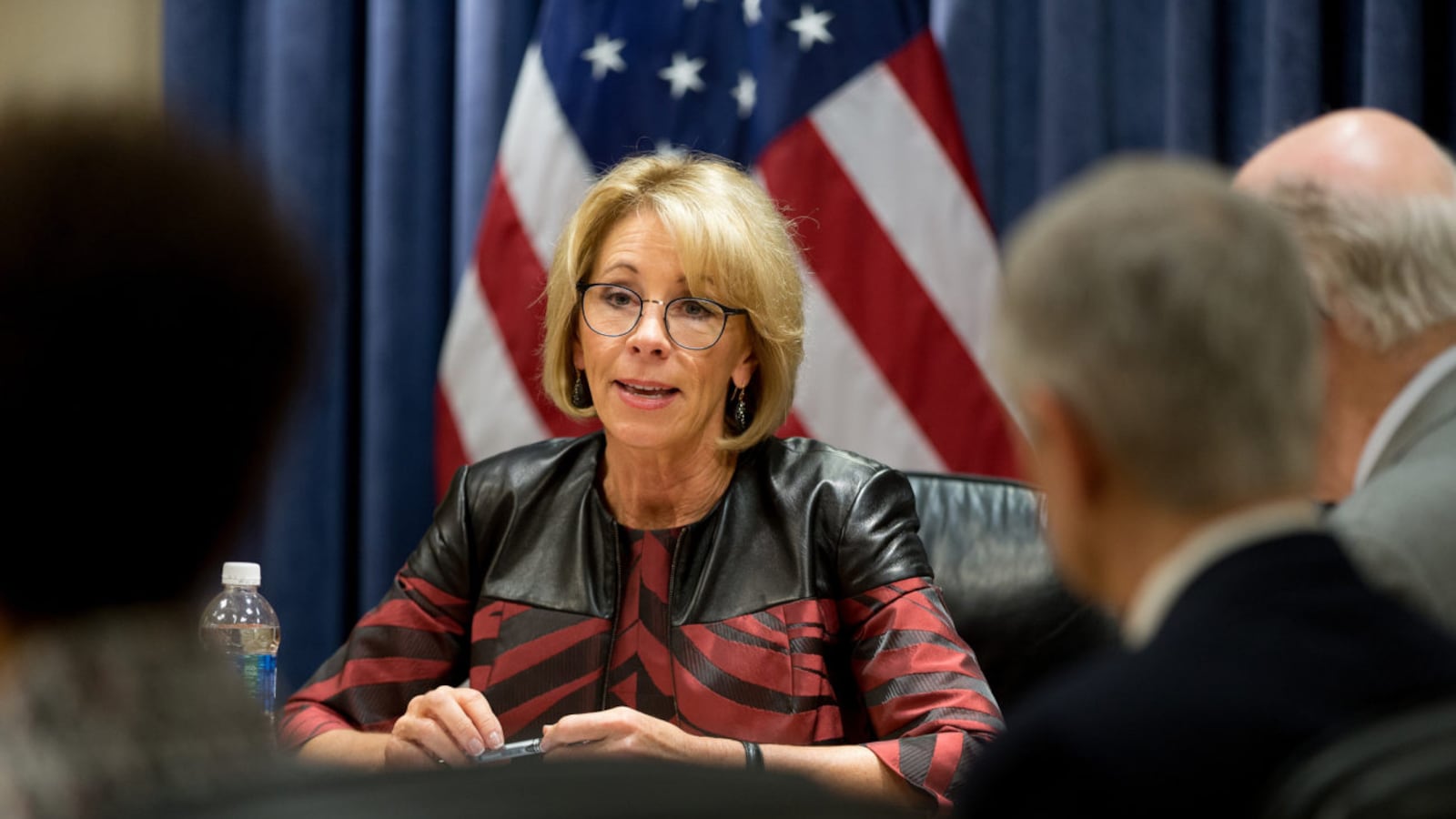It’s official: Education Secretary Betsy DeVos has rescinded the guidance issued by the Obama administration directing schools to reduce racial disparities in how they discipline students.
The move comes just days after a federal commission, led by DeVos, recommended the change in its final report, saying that the guidelines made schools less safe. There is limited evidence that’s true, though teachers at some schools have been frustrated by efforts to cut down on suspensions.
A letter rescinding the guidance was released jointly by the education and justice departments on Friday.
“Every student has the right to attend school free from discrimination. They also have the right to be respected as individuals and not treated as statistics,” DeVos said in a statement.
“In too many instances, though, I’ve heard from teachers and advocates that the previous administration’s discipline guidance often led to school environments where discipline decisions were based on a student’s race and where statistics became more important than the safety of students and teachers,” she said. “Our decision to rescind that guidance today makes it clear that discipline is a matter on which classroom teachers and local school leaders deserve and need autonomy.”
The move ends two years of speculation about when DeVos would make the call about the guidance, and continues the Trump administration’s approach to rolling back Obama administration policies.
The guidance was issued in January 2014, and told school leaders to seek out alternatives to suspension and other penalties that take students out of the classroom. It also noted that black and Hispanic students were suspended much more often than other students, and that suspensions were correlated with higher dropout rates and lower academic achievement.
The guidance warned that significant, unexplained racial disparities in discipline rates could trigger a federal review into whether a district had violated civil rights law. For civil rights organizations, this was an effort to address racism in schools and an overdue correction to the “zero tolerance” approach schools had been adopting since the 1990s. But for conservatives, the Obama-era guidance represented government overreach. In schools where suspensions were reduced without alternatives, the guidance encouraged misbehavior to go unchecked, they argued.
That’s the argument DeVos made Friday in her statement. The letter offers additional justification, saying the departments concluded that the guidance pushes “advance policy preferences and positions not required or contemplated by” federal law. The education department’s Office of Civil Rights also issued a separate Q&A. “It is not appropriate for OCR or a school to impose racial quotas or proportionality requirements for suspensions or other discipline sanctions as a remedy for discrimination,” it says.
The guidance didn’t require schools to adopt specific policies, and rescinding it won’t require changes either. But many school districts have overhauled their suspension policies in recent years. It will now be up to local officials to decide whether to change course.
Many education and civil rights groups are likely to encourage them not to, and have criticized the commission’s recommendation this week.
“This guidance is vital to deter systemic disparities, implicit biases, and discipline policies with minor and subjectively defined offenses (such as insubordination),” the National Association of School Psychologists said in a statement.
Since the guidance was issued, suspensions have fallen nationwide. Federal data shows that racial disparities have remained, though. In the 2015-16 school year, for example, 25 percent of all students suspended at least once were black boys and 14 percent were black girls, despite each group only making up 8 percent of all students in schools.
Many school districts cited the guidance as motivation for examining racial disparities in how they discipline students, and have vowed to continue that work. Other superintendents have said the guidance didn’t make a huge impact directly in how they looked at school discipline.
“I would encourage them to continue to implement discipline reforms that they believe will foster improved outcomes for their students,” DeVos concluded.
Read more: What it means for Betsy DeVos to roll back the Obama school discipline rules


